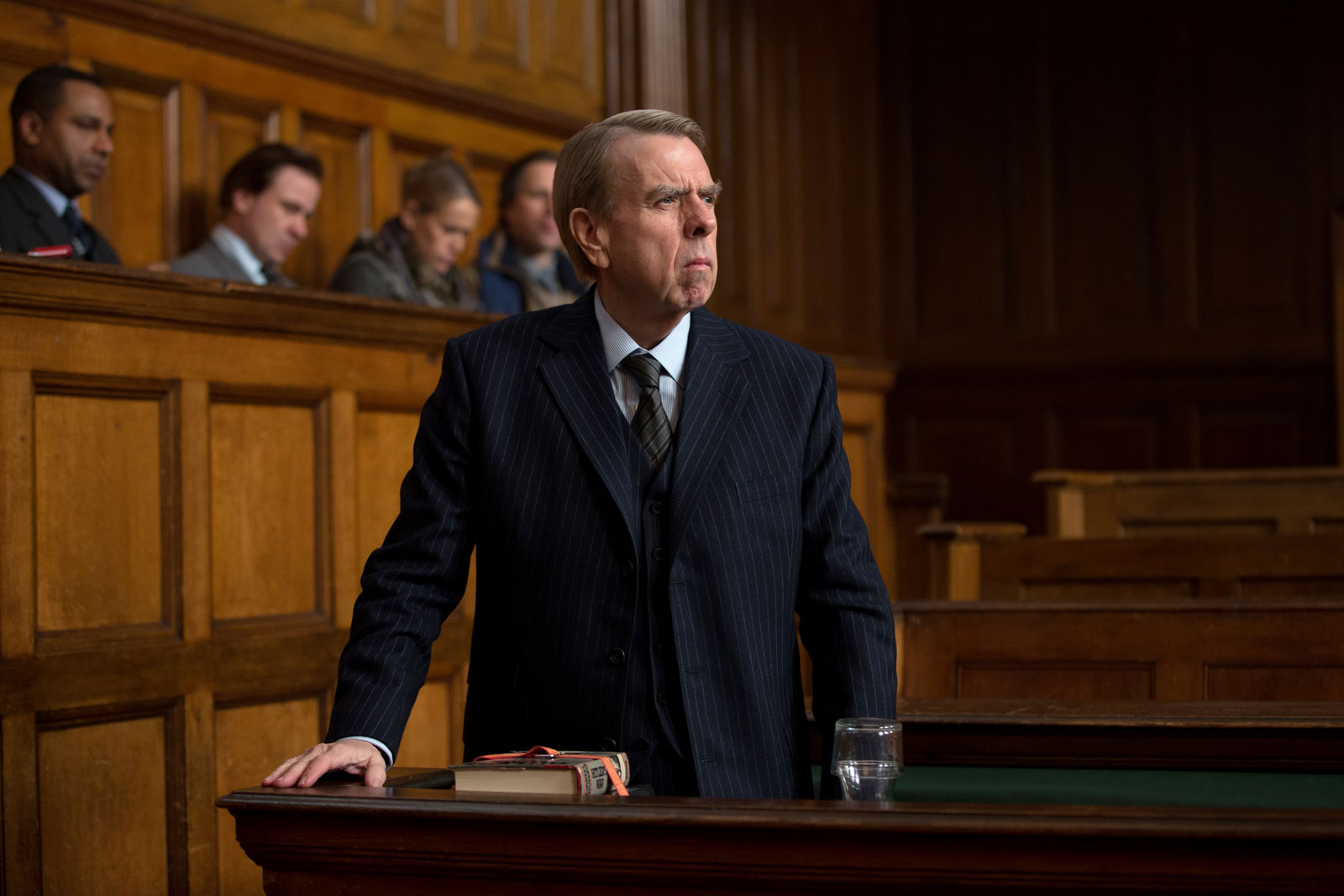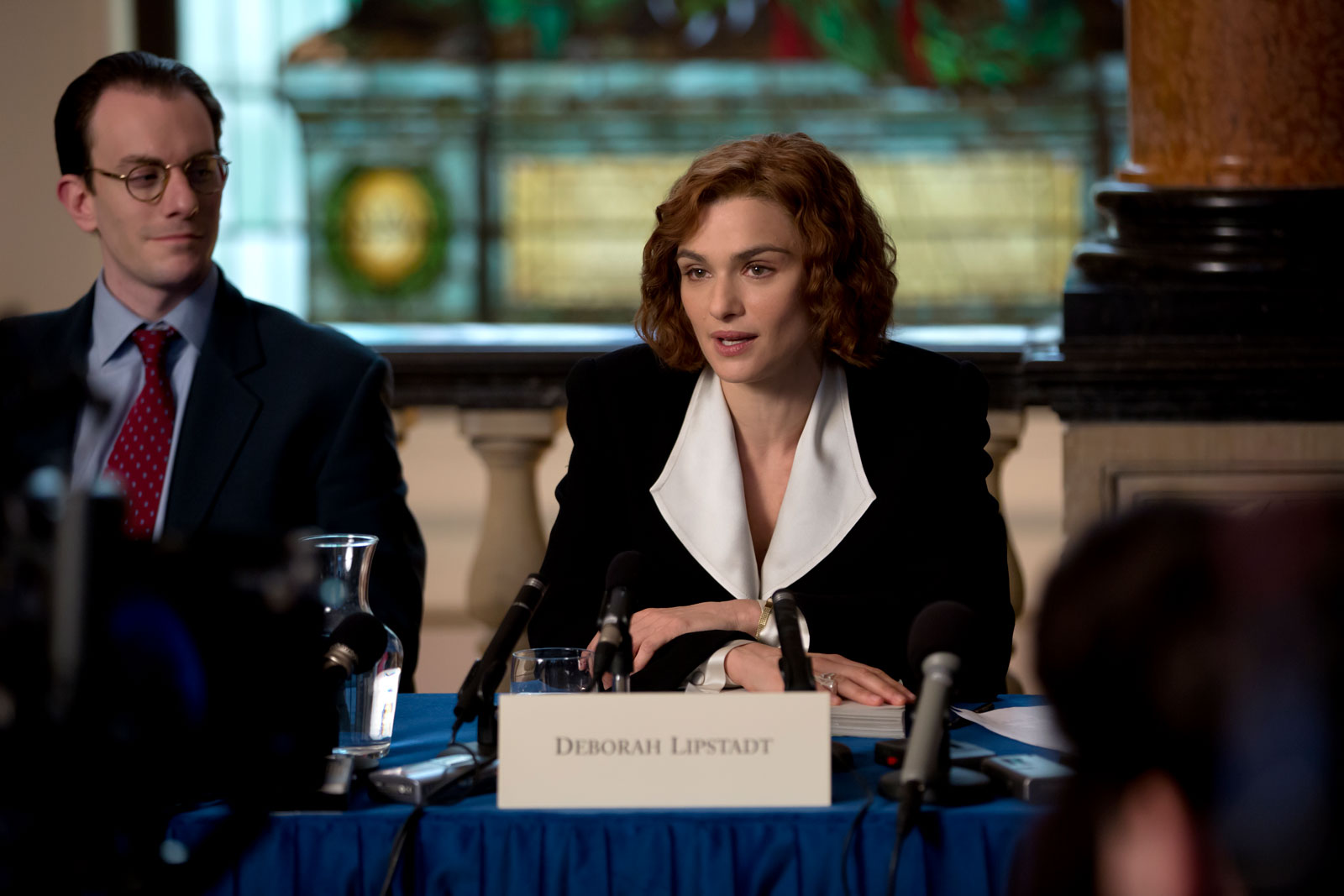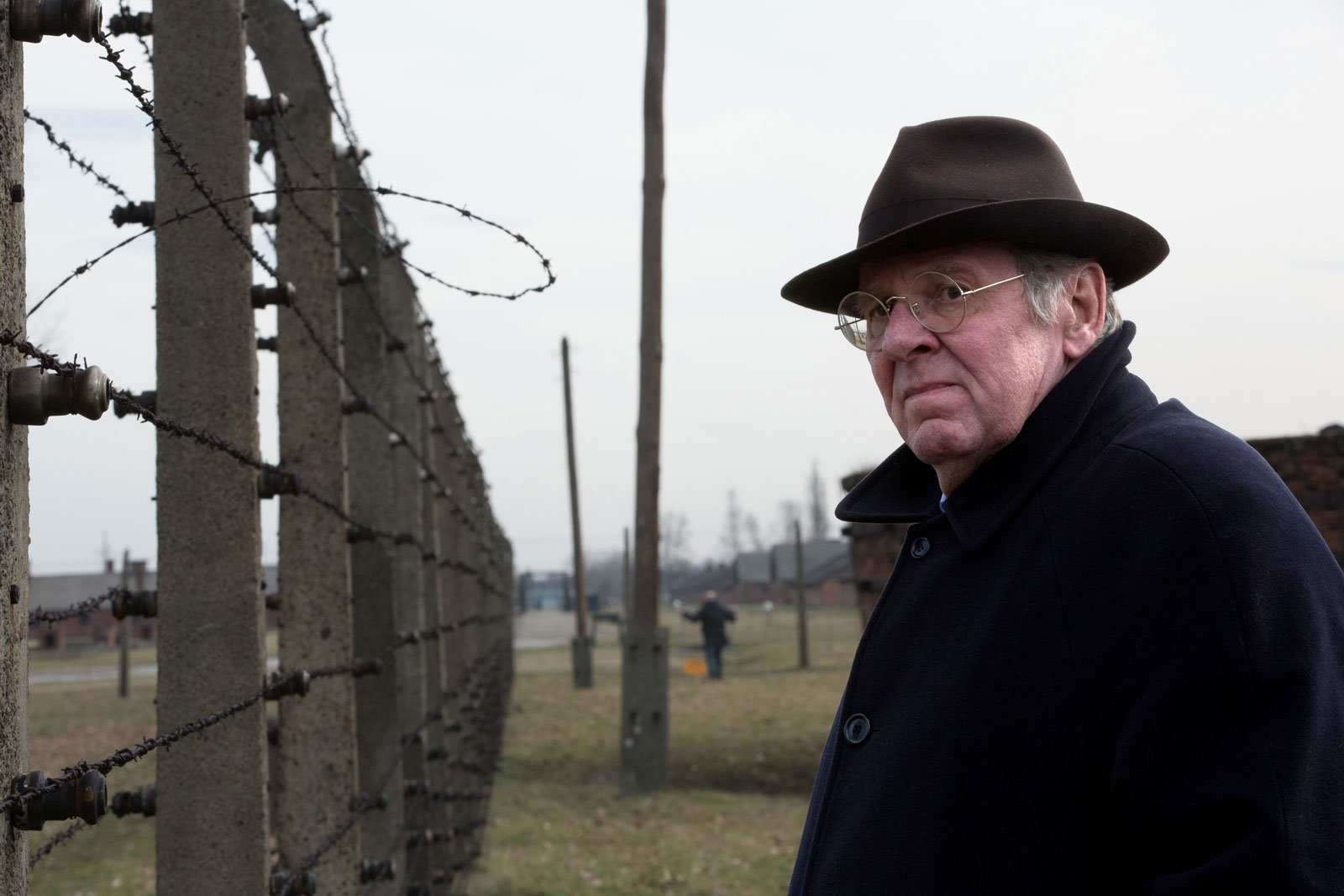In her 1993 book, Denying the Holocaust, the American academic Deborah E. Lipstadt called David Irving, a British amateur historian, “one of the most dangerous spokesmen for Holocaust denial.” I had observed Irving a year or so before Lipstadt’s book came out, addressing a neo-Nazi rally in the dreary east German town of Halle. He cut an odd figure, in his fawn trench coat, bellowing in accented German to a rowdy crowd of skinheads raising their arms in a Nazi salute. In 1996, he decided to sue Lipstadt and her publisher, Penguin Books, for libel, on the grounds that her accusation damaged his career as the serious historian that he claimed to be.
Irving had gone around Europe and the US telling sympathetic audiences that no Jews were gassed at Auschwitz, and Hitler had no genocidal intent. He even disrupted one of Lipstadt’s seminars, offering $1,000 to anyone who could show that Hitler had known about any plan for mass murder. Those who believed in this, he said in one 1991 speech, were, “Auschwitz Survivors, Survivors of the Holocaust, and Other Liars—or the ASSHOLs.”
Under British law, the defendant in a libel case has to prove that her assertion is true. So to win, Lipstadt’s lawyers had to prove in court that the mass murder of Jews by gas, and other means, was not just an assertion, but a fact. Not only that, but also that Irving had willfully denied the truth to promote his racist and anti-Semitic arguments.
Directed by Mick Jackson and written by David Hare, the new film Denial is the story of the trial, which took place in London in 2000. I was there on one of the most dramatic days, when the historian Richard Evans, as a witness for the defense, made mincemeat of Irving’s contention that Himmler had wanted to save the German Jews from deportation. This didn’t stop Irving from grandstanding to a claque of leather-clad men and blowsy blonde women who looked on adoringly from the visitors’ benches, as he turned with a wink and a meaty raised thumb whenever he thought he had landed a point in his favor.
Courtroom drama has a rich cinematic tradition in Britain and the US—not least because the Anglo-American jury system turns the courtroom into a kind of theater, with lawyers having to persuade ordinary citizens by putting on a good show. Irving versus Lipstadt was unusual in that her legal team decided to dispense with such theatricals: no jury, just a judge; no emotional scenes on the witness stand, just dry facts, designed to bury Irving in his own lies.
This might have been a problem for a movie. Arguments are not inherently dramatic. But the title, Denial, is not only about Irving’s views on the Holocaust. Irving, played in the movie by the excellent Timothy Spall, is a showman, who would have humiliated witnesses if they had been called and who would have held Lipstadt up to ridicule. Lipstadt, played by the equally superb Rachel Weisz, is not averse to playing to the gallery herself, albeit mostly in academic fora. In the trial, she had wanted to confront Irving directly and give Holocaust survivors a platform to have their testimonies heard.
It was with a great deal of heartburn, therefore, that she finally agreed to her legal team’s insistence that she keep her mouth shut during the trial and not subject survivors to Irving’s intimidation. This was her form of denial. Her barrister, Richard Rampton (Tom Wilkinson), and solicitor, Anthony Julius (Andrew Scott), would run the show. She would just have to trust them.
Such is the central drama in David Hare’s script. Rampton and Julius saw the trial in legal terms. Their job was to find the best strategy to win the case. This clashed with Lipstadt’s view of herself as a spokeswoman for her people, called to keep the memory of Jewish suffering alive.
The best scenes in the movie focus on this conflict. At the site of Auschwitz-Birkenau, for example, we see Lipstadt praying in front of the ruins of the gas chamber, while Rampton is making careful notes and asking awkward questions about the exact procedures of mass murder. She is paying her respects to the dead. He is doing forensic work. On the “sacred” spot of the killing, cool analysis and a search for legal proof look like disrespect to her.
When Rampton, a decent, wine-loving, Mozart-adoring Scot, has to break the news to Deborah Lipstadt, a feisty New Yorker, in a Krakow bar, that she will need to remain silent during the trial, she takes it as an insult—to her, and to the Jewish people.
Advertisement
All this is shown with great delicacy. The scenes of the trial itself are equally riveting. Hare was careful to stick to the exact words uttered by Rampton, Irving, the academic witnesses, and the owlish Justice Gray (Alex Jennings). The atmosphere in the courtroom is exactly as I remember it: Irving blustering and bluffing, Rampton cool and deadly, and the onlookers a weird mixture of louche Irving worshippers and anguished Jewish survivors.
The weakness of the film lies in the two protagonists, despite some brilliant acting. No attempt was made to flesh out the character of David Irving. This was apparently deliberate, as Hare himself has stated: “The film is not about Irving’s psychology. He is seen almost exclusively from Deborah’s point of view, so I have no right to speculate or try to explain Irving.”
But this is a limitation as far as the film is concerned. Irving is portrayed by Spall as a somewhat mad English gent, with an ingratiating manner and a fanatical stare. In reality, Irving is more of a bruiser, a vulgar bully who came from what George Orwell called the lower upper-middle-class, that is to say, not petty bourgeois, but not upper-class either. His father was a naval officer. Irving likes to come across as a plummy upper-class toff while being consumed with hatred for people who might be considered to be his social or intellectual betters. At the trial this was especially visible during his exchanges with Richard Evans, not a man from the upper-class either, but a genuine intellectual who later became the Regius Professor of History at Cambridge. Neither man could even look the other in the eye.
Lipstadt’s point of view, not just of Irving, but also of herself, is taken too much at face value. She is an admirable scholar and a brave woman. Her victory in the trial was not only richly deserved, but essential to show up Holocaust denial as the anti-Semitic propaganda that it is. But there is something histrionic about the view of her as a fighter for her people. Over and over we see her jogging past the statue of Queen Boadicea on the Embankment in London, and after her victory in court she looks up in a kind of rapture to the bronze impression of this Celtic rebel against the Romans in AD 61 as a fellow leader of resistance. The overt parallel drawn between a history professor at Emory University in Atlanta and the image of a heroine revived in the nineteenth century to glorify Queen Victoria might seem a little strained. And the musical score to accompany this peculiar form of heroine worship is suited better to patriotic schlock like Chariots of Fire than to a courtroom drama about the Holocaust.
There was no need for this. There is more than enough drama in a classic story of hubris and nemesis, of a menacing British racist who tried to stifle his critic and failed. Not that Irving would admit this. In a television interview after the trial, partly reenacted in the film, Irving is asked whether he will now finally stop denying the Holocaust. His answer: “Good Lord, no.”
Mick Jackson’s Denial opens in New York City and Los Angeles on September 30.





